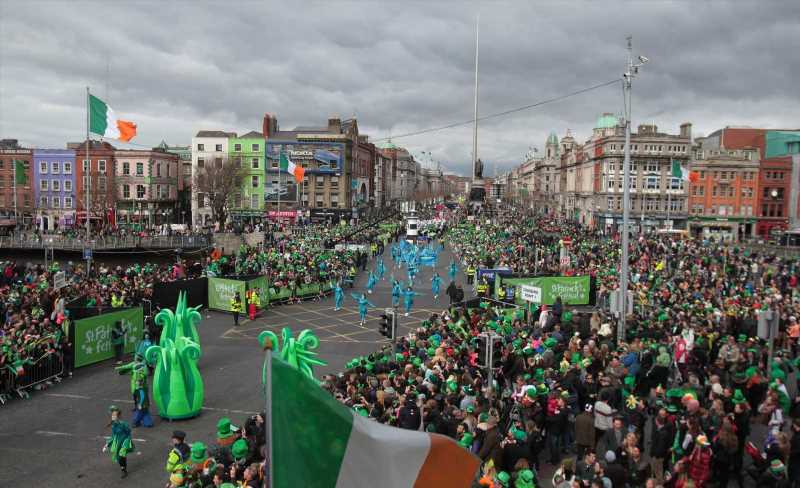THE celebration of St Patrick's Day is an annual commemoration of Ireland's patron saint.
Here, we look at when it is celebrated, and how you can say "Happy St Patrick's Day" in Gaelic.

How do you say Happy St Patrick's Day in Irish Gaelic?
If you are speaking to one person to say "Happy St Patrick's Day" then you would tell them “Lá fhéile Pádraig sona dhuit!”
It is pronounced: “lah ay-luh PAH-drig SUN-uh gwitch.”
When speaking to a group of people you would say “lá fhéile Pádraig sona dhaoibh!”
It is pronounced: “lah ay-luh PAH-drig SUN-uh YEE-uv.”
More on St Patrick's Day

The correct way to say St Patrick's Day revealed

Seven top deals to celebrate St Patrick's Day at the pub or at home
To say "St Patrick's Day blessings to you" it would be “beannachtaí na Féile Pádraig dhuit!”
You would pronounce the phrase as “BAN-ukh-tee nuh FAY-leh PAH-drig gwitch.”
To wish a group of people St's Patrick's Day blessings you would say “beannachtaí na Féile Pádraig oraibh!”
And that is pronounced: “BAN-ukh-tee nuh FAY-leh PAH-drig ur-iv.”
MOST READ IN FABULOUS

Denise writes heartfelt open letter to daughter Betsy, 12, about their struggles

I'm live in a shed in my parents’ garden – I love my life & don't pay rent

I sold my three-bed home to live on a cruise ship and it’ll save me £20K per year

Matalan shoppers rush to buy £22 dress that fans say 'doesn't crease'
When is St Patrick’s Day 2023?
Every year St Patrick’s Day falls on March 17 and this year it is a Friday.
In Ireland, the day of cultural and religious celebration has been a public holiday since 1903 when the first parade was held in Waterford.
In the UK, Queen Elizabeth, The Queen Mother, would present bowls of shamrock flown over from Ireland to members of the Irish Guards in the British Army.
The tradition carries on today with the Irish Guards still wearing shamrocks flown over from Ireland.
Why do we celebrate St Patrick’s Day?
St Patrick’s Day is thought to represent the date that St Patrick died – the foremost patron saint of Ireland.
It was made an official Christian feast day in the early 17th century and while the day is a holy and religious day in the Catholic Church and others, it has more recently become a day to celebrate Ireland as a nation and all things Irish too.
Until the 20th century, St Patrick’s Day celebrations were actually a bigger deal among Irish diaspora – Irish descendants living outside Ireland, particularly in North America.
It is not a legal holiday in the US, but is widely celebrated there and in Canada – where the longest-running parade has been held in Montreal since 1884.
Source: Read Full Article


